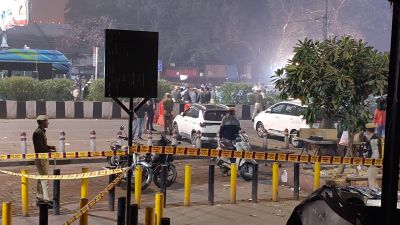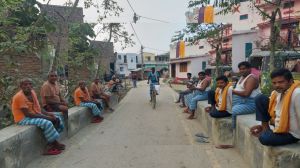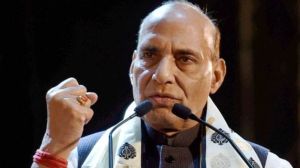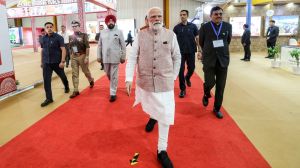CJI sounds warning bells on judiciary & activism link
He said it would be the same in case a family member regularly appears before a judge
Cautioning judges against active involvement in community organisations especially when their civil society associates appear as litigants before them,Chief Justice of India S H Kapadia today said this could give rise to adverse public perception and affect the working of an integrity institution like the judiciary.
He said it would be the same in case a family member regularly appears before a judge.
Delivering the Fifth M C Setalvad Memorial Lecture on Judicial Ethics,Justice Kapadia said: Judicial activism which is not grounded on textual commitment to the Constitution or the statute,unlike activism in cases of human rights and life and personal liberty,raises questions of accountability of judiciary whose members are not chosen by any democratic process and whose members are not answerable to the electorate or to the legislature or to the executive.
We,judges,should remember that the validity of our decisions cannot rest on popularity. Resisting the pressure to please the majority is the strength of the judiciary,not its weakness. Judges who invoke the Constitution to protect the rights of people and who declare a statute unconstitutional are not legislating from the Bench,nor are they thwarting the will of the majority. They are merely carrying out their oath of office and following the rule of law, he said.
Justice Kapadia said that frequent socializing with particular members of the legal profession or with the litigants,including potential litigants,is certain to raise,in the minds of others,the suspicion that the judge is susceptible to undue influence in the discharge of his duties.
A judge must inevitably choose to be a little aloof and isolated from the community at large. He should not be in contact with lawyers,individuals or political parties,their leaders or ministers unless it be on purely social occasions. When one enters the judges world,one inevitably has to impose upon himself certain obvious restrictions.
Saying I am not a member of any golf club, Justice Kapadia urged judges to resist patronage,guard against preferential treatment,and not be tempted by post-retirement assignments. These can give rise to corruption if and when quid pro quo makes a demand on such judges.
Political protection,he said,should not be given to corrupt judges. He asked the judiciary to live by example and maintain self-restraint.
He disapproved of judges passing directions akin to legislatures,reminding them of the doctrine of separation of powers. We must refuse to sit as a super-legislature,to weigh the wisdom of legislation. We are not concerned with the wisdom,need or appropriateness of the legislation.



- 0112 hours ago
- 022 hours ago
- 0312 hours ago
- 0412 hours ago
- 052 hours ago




























